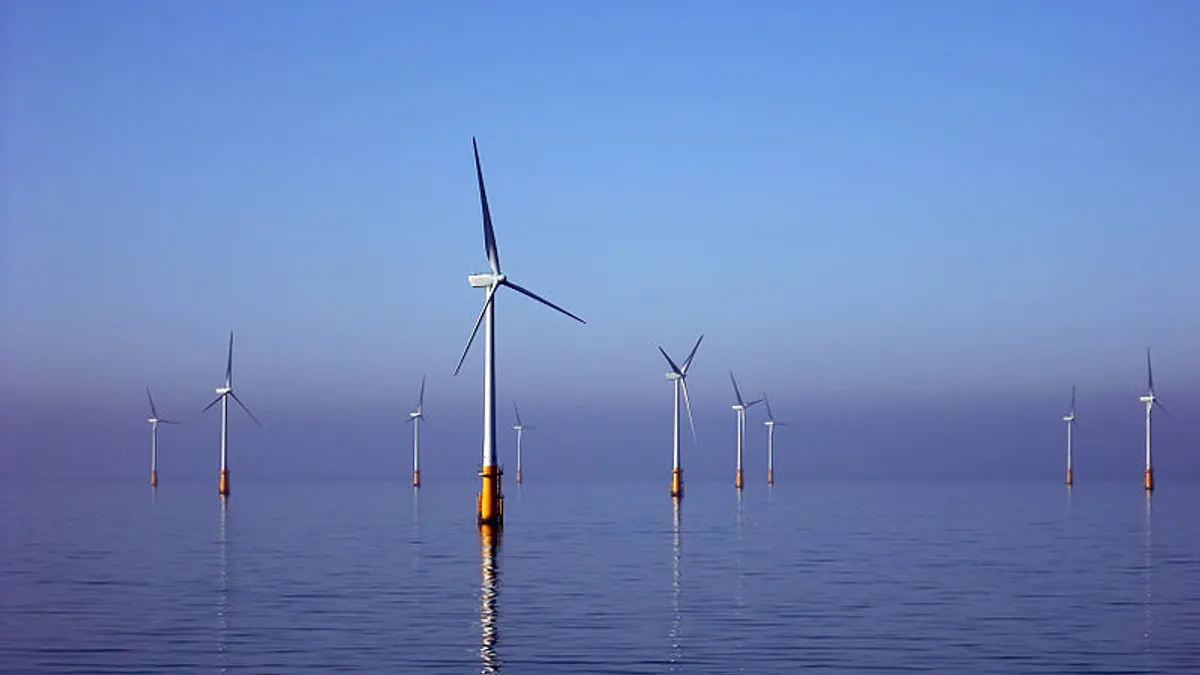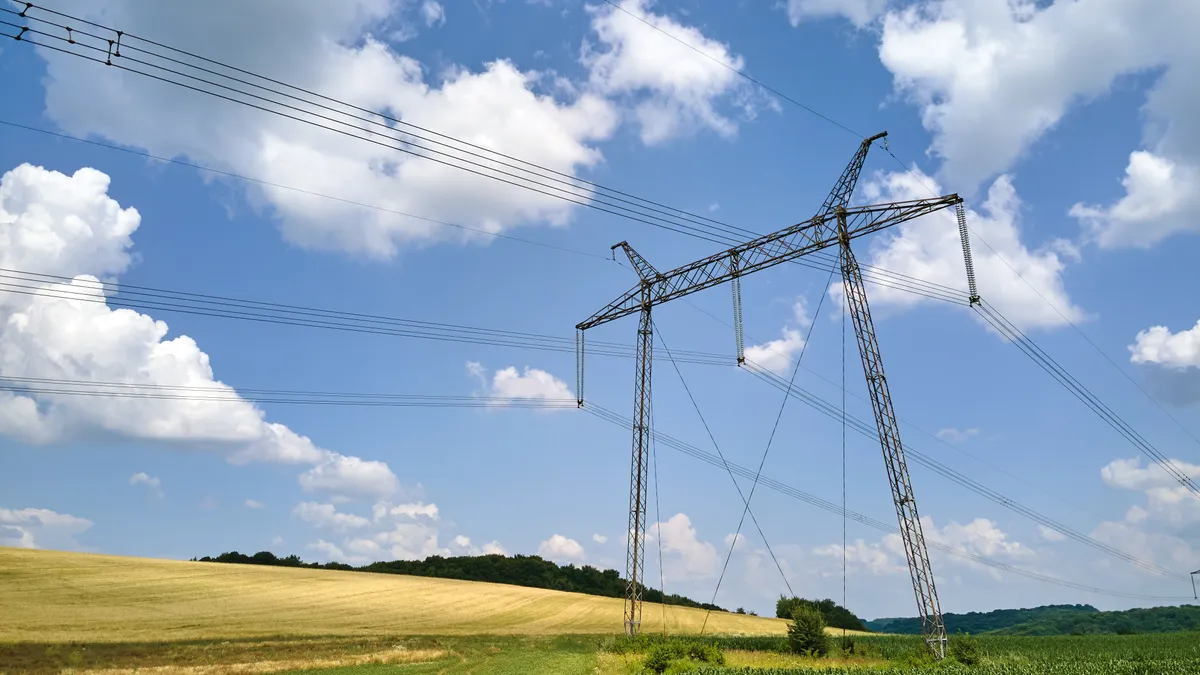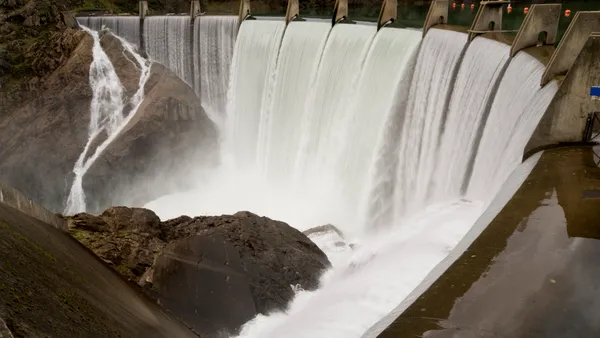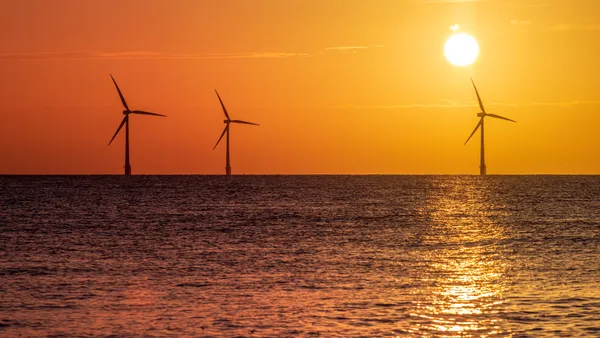Dive Brief:
- U.S. Senators Tom Carper (D-DE) and Susan Collins (R-ME) have introduced legislation to encourage the growth of the offshore wind energy, creating an investment tax credit that would be redeemable for the first 3,000 MW placed into service.
- Lawmakers say that volume of energy capacity would require the development of 600 wind turbines.
- The legislation defines "offshore facilities" broadly, including any facility located in the inland navigable waters of the United States, such as the Great Lakes, or in coastal waters including the territorial seas of the United States.
Dive Insight:
In theory, there is enough offshore wind potential on the East Coast to meet electricity needs from Florida to Maine, but the costs are still high, especially compared with the cheaper onshore wind and solar energy. The University of Delaware Special Initiative on Offshore Wind has estimated that the Atlantic coast holds 330 GW of offshore wind power, which would be sufficient to power the entire East Coast.
Yet the industry's growth is starting to gain momentum in the United States after wind developer Deepwater Wind completed the nation's first successful offshore wind farm and two Northeastern states set offshore wind targets. But with the federal wind production tax credit set to phase out in 2019, a bipartisan pair of Senators are pushing to create an offshore-specific credit.
“By giving private sector companies the certainty they need, our legislation will help accelerate the development of this promising industry in America and create a new, sustainable source of domestic power," said Collins in a statement.
Ten other Senators have signed onto the bill; all of them are Democrats or Independent, most representing coastal states.
Democratic Senators supporting the bill include: Sherrod Brown (Ohio), Ben Cardin (Maryland), Chris Coons (Delaware), Robert Menendez (New Jersey), Edward Markey (Massachusetts), Jack Reed (Rhode Island), Brian Schatz (Hawaii), Elizabeth Warren (Massachusetts) and Sheldon Whitehouse (Rhode Island). Maine Sen. Angus King, an independent, is also supporting the bill.














